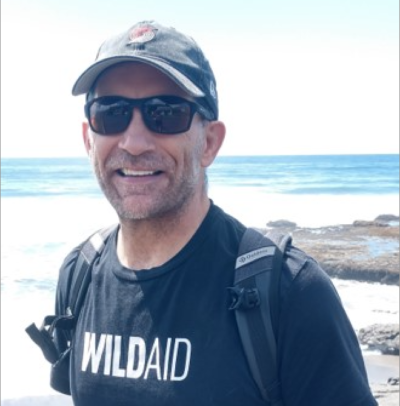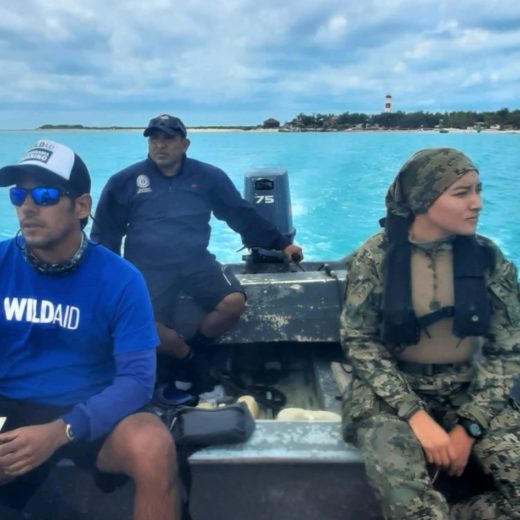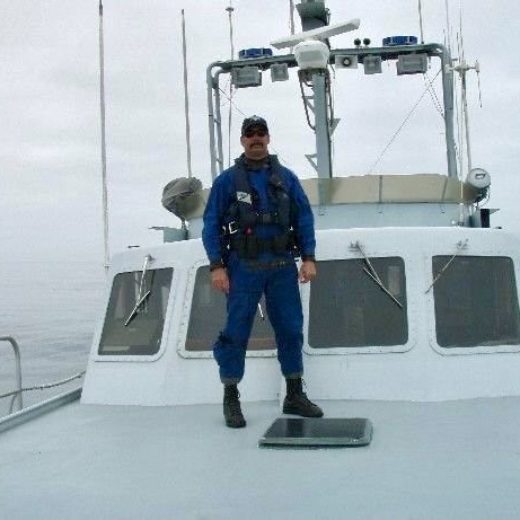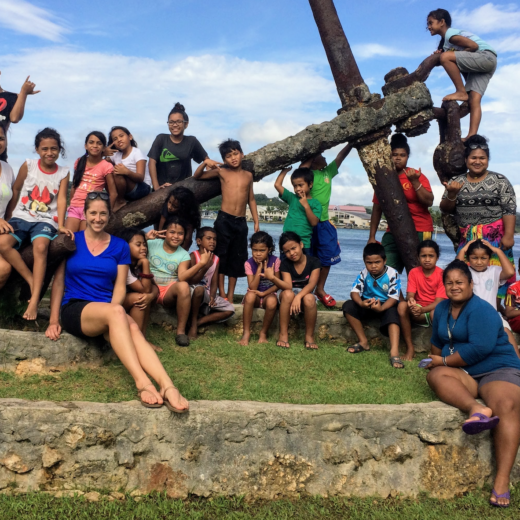
Originally published on WildAid Marine on May 12, 2021.
This interview series profiles the individuals that make up the WildAid Marine team. With a diversity of professional backgrounds, ranging from marine enforcement to marketing, our team supports partners around the world in protecting their coastal and marine resources.
Jay Udelhoven, Marine Policy Advisor and Project Manager
Given the diversity and depth of Jay’s conservation career, it may be surprising to learn that his original plan was to go into accounting. After struggling through his first year of college accounting classes, Jay joined the military which is when he ultimately decided to pursue his passion for the natural world. Following his military service, Jay returned to college to study natural resources. Upon completion, he pursued a career in conservation which has taken him to many corners of the world. Jay has served in a variety of interesting roles that helped develop his skills as a natural resource manager. Through these experiences, Jay quickly realized that few projects went as planned; he learned to roll with the punches and laugh along the way, a vital skill for any conservation professional.
What do you do for WildAid Marine?
I’m a natural resource and environmental consultant working with WildAid Marine in Zanzibar, Tanzania, on a project that aims to improve the monitoring and surveillance system within a marine protected area. My specific role is project leadership, policy analysis, and training development and delivery.
What first got you interested in oceans? Was it a documentary? A book? A friend?
Being from the Midwest, I started my conservation career focusing on terrestrial ecosystems. As my work progressed substantively and geographically, I found myself involved in freshwater wetland conservation, then freshwater ecosystems more broadly, and finally marine ecosystems. They are all part of an interconnected whole, with the oceans making up 70% of the earth. I currently work in all major ecosystems.
How did your career in conservation start?
I was 19 years old, in the Army, camping alone with my M-16 on top of a mountain guarding a radio. It was not entirely rewarding, but I had plenty of time to myself for contemplation. I saw two paths forward for my life: 1) 19 more years in the military guarding radios until I retired; or 2) get out of the military as soon as I could, go to college focusing on something I loved, and make a profession of it. I took the latter of the two paths.
What is one thing about your job or the work you do that might surprise people?
It appears that most people think conservationists are the purest “tree huggers,” against all forms of development and natural resource use. This is not the case for the most part. People need stuff to survive, whether that be timber, freshwater, or fish. The question is, how can we provide for the needs of people in the most sustainable way possible? It’s not either-or; it is both.
What gives you hope for the future of our oceans?
People seem to be getting used to the idea that the oceans are not inexhaustible. There is a general understanding that the oceans are essential to all life on the planet, and they are at risk. The tide is turning, so to speak.
If you could tell your younger self one thing, what would it be?
I got married way too young. At 19 years old and in the Army, I was homesick and missed my girlfriend back home, so we got married. They say though, the toughest job in the military is being a military spouse. It was difficult and the marriage didn’t last long. For me, I was still trying to figure out who I was during those early years after high school and college. Few people really know who they are in their twenties. In the conservation field, as with many professions, your work life and personal life often collide, so it’s helpful to take time to figure yourself out to the extent that you can. For most people, conservation work is a passion and part of their soul. Finding other people who can relate to this and support you in your efforts will be key.
What is the best advice for young people trying to go into conservation?
Unpaid internships are a great way to gain experience but are not something everyone can afford — I know I couldn’t. I started by working minimum wage field jobs every summer while in college. Conservation jobs are out there, but you will likely not land your dream job that pays well right out of college. I immediately joined the Peace Corps after college, gained some really solid experience, and made great professional connections. While the Peace Corps is an intense experience, I highly recommend it for those who think they are up for the challenge. From there, explore the world and be prepared to put in long hours and work hard.
Read the original article here.
Stay in touch and get the latest WildAid updates.
SIGN UP



